From Villages to Football Fields – Interview with Dr. Rashmi Tiwari, Founder/Director, Aahan Tribal Foundation of India
Dr. Rashmi Tiwari is the Founder and Director of Aahan Tribal Foundation of India, working to dismantle the machinery of trafficking by making at-risk tribal girls and women financially independent, self-reliant and aware about their rights and privileges by providing life skills, entrepreneurial skills, local employment opportunities, mentoring and creating engagements using arts, performing arts and sports. She is Fellow of Vital Voices (USA), Fellow of SIMP and a Certified Leadership Coach from NeuroLeadership Institute.
She has been selected as one of the emerging women business leaders from India under the Fortune/US State Department Leadership Mentorship Program. She was mentored by Ms. Anne Mulcahy, Chairperson & CEO, Xerox Corporation and also featured in Forbes magazine.
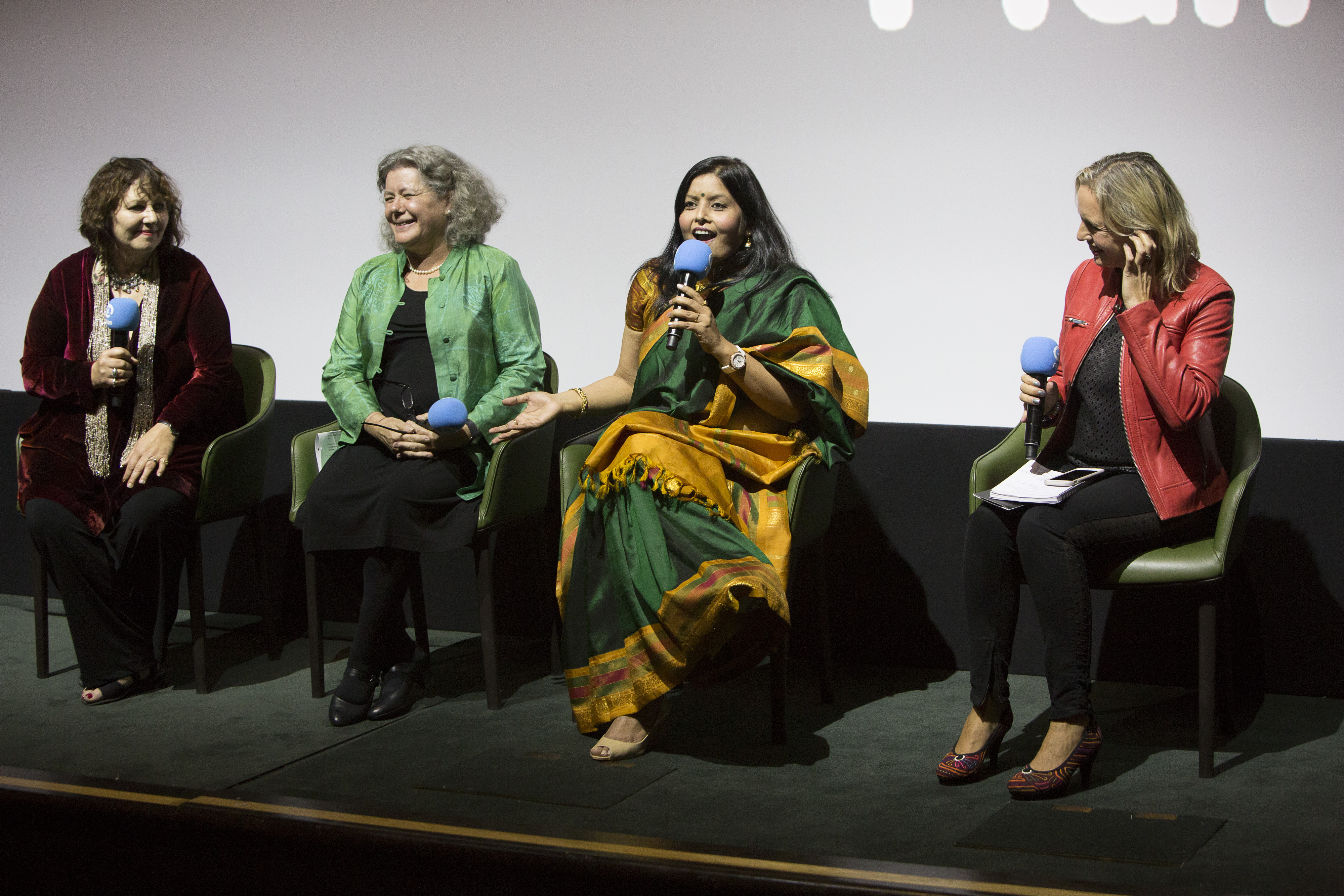 Sourya (S): Please tell us something about your early childhood?
Sourya (S): Please tell us something about your early childhood?
Rashmi Tiwari (R): I spent the formative years of my childhood (until the age of nine) in Mumbai. Until that age, I was an introvert child at home and extrovert at school. I was very famous for my good memory and entrepreneurial ventures like organizing society talent show, making Shiva temple in the sand to raise funds for our dolls weddings etc.
Life treated me like a princess till I was 9 years old with all the possible luxuries of life and then in the blink of an eye I found myself at the other end of the spectrum where the only luxury I could have was a 60 W light bulb in a 3.5m x 5.5m house. A house, which was my drawing room, bedroom as well as the kitchen till I completed my Masters.
I was a posthumous child and for some time I and my mother had to work as a daily wage laborer to help us survive this downhill journey. Later on, I spent a significant part of my life in Varanasi.
The discrimination and stigma of our conservative society were evident and worked as a spanner in the wheel whenever I tried to spread my wings. However, nothing could hold me back; it merely slowed me down. I distinctly remember that even under those harsh financial conditions I gave up the scholarship meant for girl students who were coming from the financially weaker section when I was in class 7th. Although I knew what the reality was, I never believed that I was weak or vulnerable. Instead of taking the scholarship which would have tagged me and my mother “poor”, I decided to protect my self-respect and earn school books and clothes by showing my dance and mimicry skills to the senior girl students.
All these adversities like hunger, poverty, discrimination etc made me stronger. By the time I was a decade old, I had experienced the taste of my notebook page because at times it was the only thing I could nibble on. However, I never chose to seek sympathy.
(S): What was your work at the American Chambers of Commerce In India?
(R): I worked for around 10 years in American Chambers of Commerce in India (AMCHAM) which was set up to facilitate the growth of American Corporations in India.
My responsibilities included but did not limit itself to understanding the policy related matters and economic factors affecting the growth of the US companies in India, suggesting policy related modification frameworks, assisting in effective implementation of policy related interventions, working with CEOs and local government bodies, facilitating cross-cultural dialogues, preparing sectoral position papers, leading delegations to engage with policy makers etc.
(S): How did the idea of Aahan Tribal Development Foundation arise?
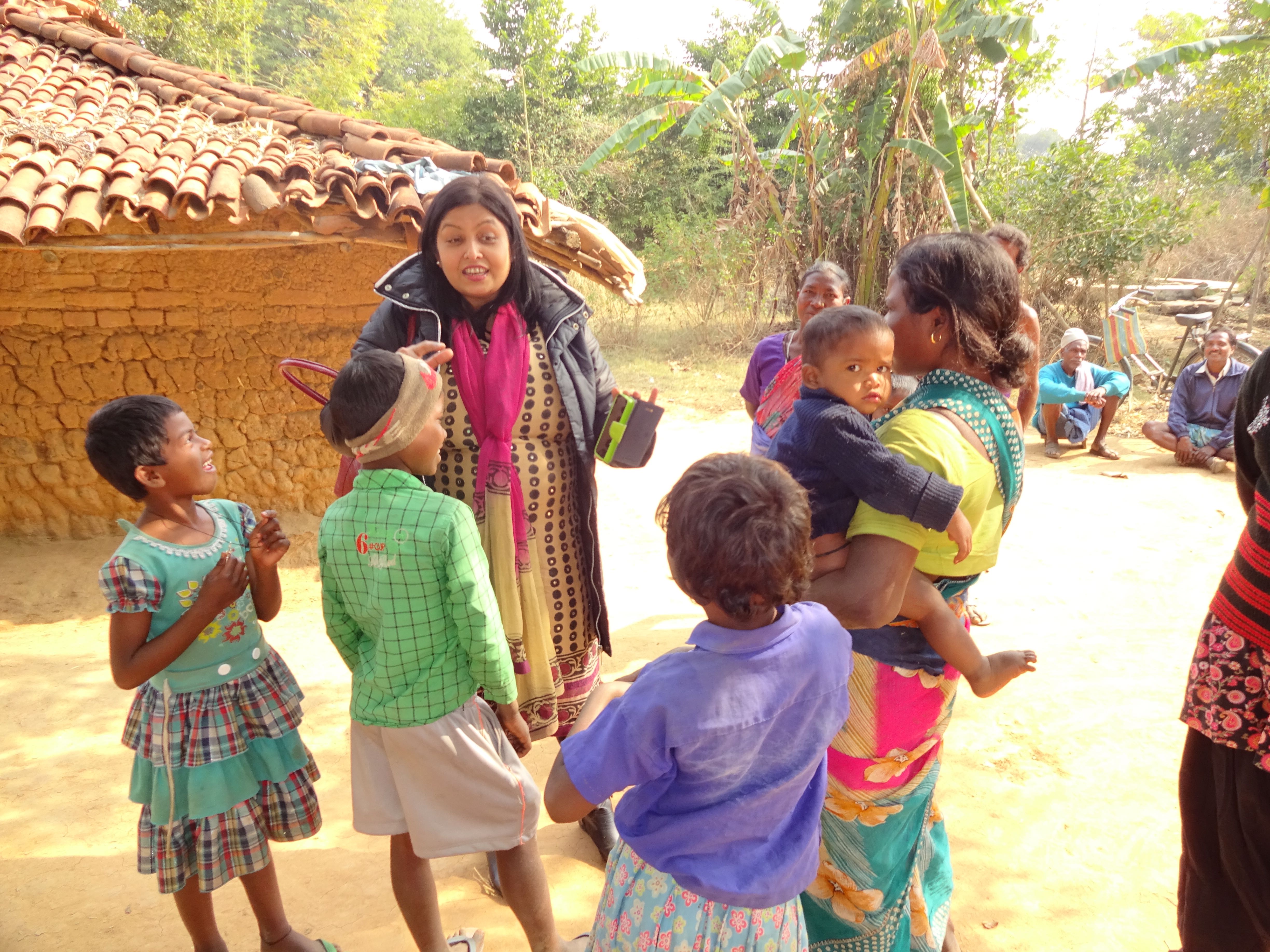
(R): I always had a latent desire to work in the social. However, fear of uncertainty always pulled me from taking the plunge. The turning point in my life came when I met a tribal family of four in a small village of Orissa. The family was very poor and had very little food to survive on. While I was interacting with the mother of the two girls, I expressed my desire to speak with her other daughter as well. She said that I can only call one girl at a time as there is only one set of clothes that my two daughter share. I felt transported to the same period when I was starving and dancing to get satisfy my basic needs. I knew that my calling is to help these tribal people who are living on the edge and decided to start Aahan.
(S): What exactly does Aahan do?
(R): Aahan Foundation works to break the inter-generational vicious cycle of gender-based violence such as human trafficking, sexual abuse, child marriage, and poverty widely prevalent amongst tribal girls of Jharkhand.
Aahan works with S.M.A.R.T community to holistically deal with the issues of tribal girls and women. It stands for:
S: Sarpanch; members of the local self-government.
M: Media, Journalists, and Stringers
A: Authority; BDO, Police etc
R: Religious Leaders; influential people respected by tribals
T: Tribal Families
We partner with Local, National and International organizations for doing ground-level development activities in the tribal areas of India. These activities are focused towards making at-risk tribal girls and women financially independent, self-reliant and aware of their rights and privileges by providing:
1) Life skills
2) Entrepreneurial skills
3) Local employment opportunities
4) Mentoring
5) Creating engagements using arts, performing arts and sports.
(S) What were the grassroots level challenges you faced when you tried to tackle the problem of child marriage and girl child trafficking?
(R): Geographic Inaccessibility and Naxalites: Tribal areas especially those areas where primitive tribal groups reside are extremely deep-seated and are devoid of even basic infrastructure like toilets, electricity, and roads. It is not only it is extremely difficult to reach such areas, it is also extremely dangerous. The Naxalites have been considered as the biggest internal security threat by former PM of India- Dr. Manmohan Singh and they actively oppose any development activities in the region. The frequent combing operations in these areas further delay our pace of activities.
Language and cultural barriers: It is extremely difficult to earn the trust of people as they do not understand our language. The tribal people of India have been neglected for an awfully long period of time and few encounters they have are with the mafia and other unscrupulous people who are ready to devour their land and resources. It was extremely difficult to win their trust and start activities.
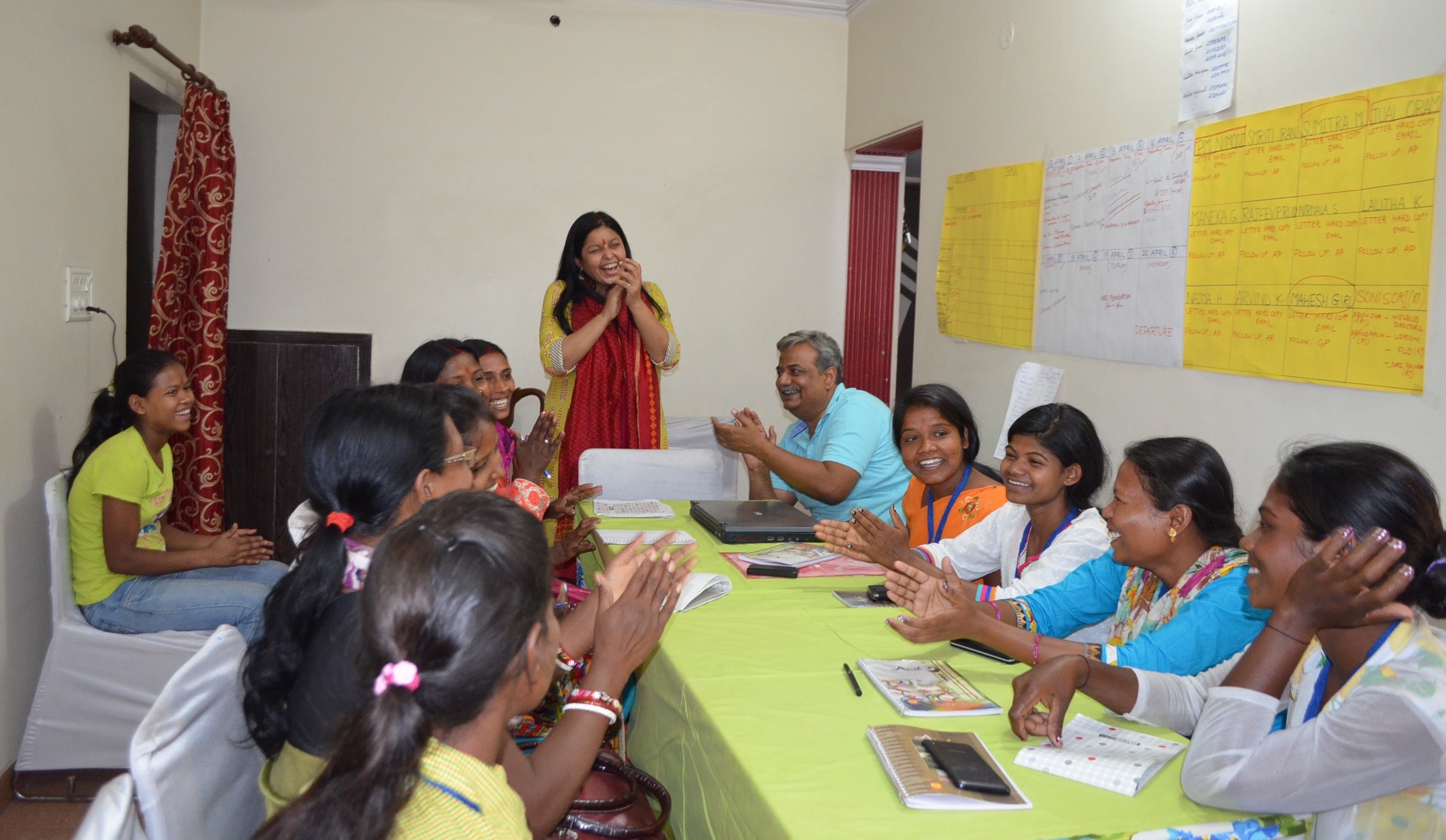
Penetrating the media dark regions of tribal India: Not much information is available about the vast majority tribal areas of India as they are not covered by media and sometimes not even by the research bodies. Under these circumstances, it is imperative to find somebody in the tribal areas who not only understand our language but also has an intention to help us in starting the community development work.
Time constraint: On several occasions, it became absolutely difficult for me to keep a balance between my dreams and the demand of my job as Executive Director- CEO Clubs. Those initial days refined my understanding of time management.
Finding Mentors: It is difficult to find women mentors in tribal areas due to being few in number and also because they are still in the media dark regions. Mentorship is a new concept to them and they take a little bit of time in placing their trust in us. However, once explained about the program and the benefits it shall bring with it to the fellow women, they were eager to help and participate enthusiastically.
Raising fund from the corporates: Majority of the tribal regions do not form a part of the consumer segment and hence we faced difficulty in raising the funds from the corporates. Also since we are less than three years old we are not eligible for government aids under the current rules.
In order to penetrate deeper and in lesser time, together with the help of my business partner who happens to be from a journalism background, we forged a network of journalists. They helped us in getting a foothold in the tribal locations by connecting us with the local leaders and communicating them our vision.
We set out to identify change agents, women leaders and influential people who were ready to lend their support in identifying and empowering girls/ women who wish to make a difference in their lives.
(S): Despite having laws of the same, what do you think is lacking in terms of policy or implementation, when it comes to prevention of child marriage and girl child trafficking, especially in tribal areas.
(R): Extreme poverty and ignorance of parents is the main reason for such forms of gender-based violence on girls. Sometimes parents send the girls to cities thinking that their child will get good work and education. However, they are simply unaware of the exploitation of girls. When the child goes missing they are afraid of even going to the Police for the fear of being branded as Police informers by Naxals. Such a situation means imminent death or severe torture at the hands of Naxals. Since the police do not get the support from parents it makes their job difficult to enforce the law. However, sadly sometimes parents sell the girls because they see that as the only way to ensure the survival of other members of the family. 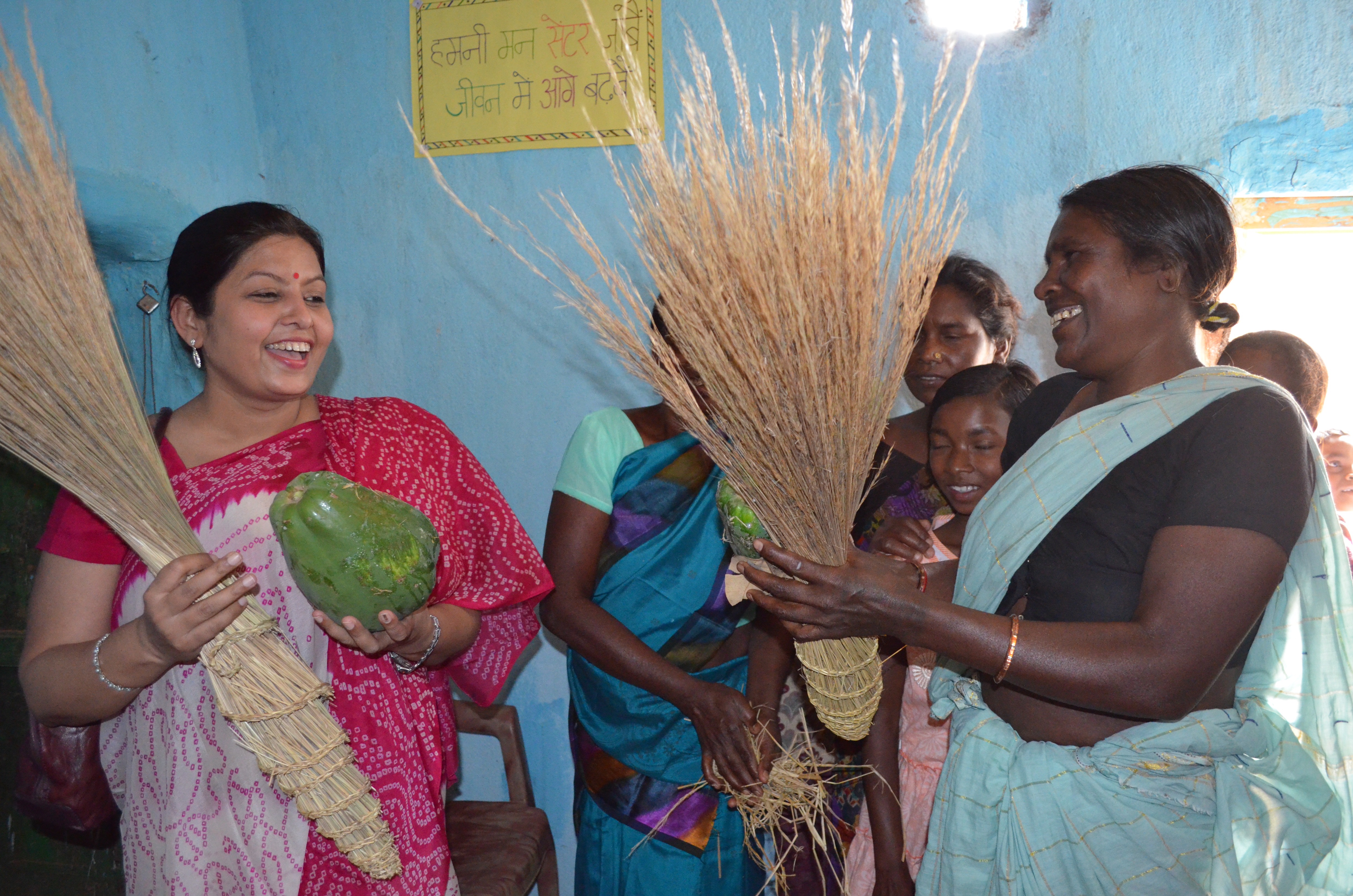
(S): How did you go about gaining the trust of the locals? Did you ever face any problems from Naxals?
(R): Yes, we did face life-threatening situations due to Naxals.
Locational and Security Issues- How did we overcome it:
We made use of local news-reporters and few people who are well aware of the local areas. The reporters and locals are not perceived as an imminent threat by Naxals. Hence, by carefully choosing such resources we ensured our safe passage to the interiors to gather information and support for the cause. Further, we approached the women Mukhiya and Sarpanchs of the villages and explained to them our objectives of coming to their village. These women have detailed knowledge about their areas and are well connected as well. They took several steps in advance to ensure a safe passage and stay for me and my colleagues.
Gaining the trust of the tribal people: To win their trust I offered them something, which I knew is very difficult to refuse especially when you are hungry. Samosas and Gulab Jamun. I asked girls to just listen to me and gave them Samosas and Gulab Jamun as rewards at end of the classes. Slowly as they listened to me and understood my intentions the trust built up.
We interacted with the women Sarpanch and members of self-help groups. We made them aware about our intentions and how exactly we are going to systematically eradicate the menace of trafficking. These women enjoy great respect among the tribal community members and especially tribal women. They were able to make the tribal families aware of us in their local language and put a word of recommendation as well. All this greatly helped us in breaking the ice and take tribals into confidence.
(S): How did the idea of the Aahan Football Team arise? Do you like playing football?
(R): No, and I have never played football in my lifetime. The football is a means to empower the tribal girls and help them break the shackles of gender-based violence. There is a girl by the name of Rupanti Munda whom I spotted working at a farm in Dhoti village of Jharkhand. I was surprised to notice that she had been selected for the India camp but could not go as she could not get her passport done due to the shortage of money. Her father and brother had been killed by Naxals and she had to support the family of 8. This forced her to quit her dream of playing football and focus on making both ends meet. Rupanti is not alone there are many girls in Jharkhand’s tribal areas who play football but are unable to pursue it due to pressure from the family to either earn or get married. I thought to make use of this popular sports to build a cohesive community of tribal girls who play and take control of their lives.
(S): What next for Aahan Tribal Development Foundation?
(R): We want to create a social enterprise, which would allow a number of girls and their mothers to gain employment within their villages. This enterprise will sell recycled clothes, eco-friendly pencils, sanitary pads etc.
We are working towards creating Football Academy to train tribals girls and make them capable of playing at professional level.
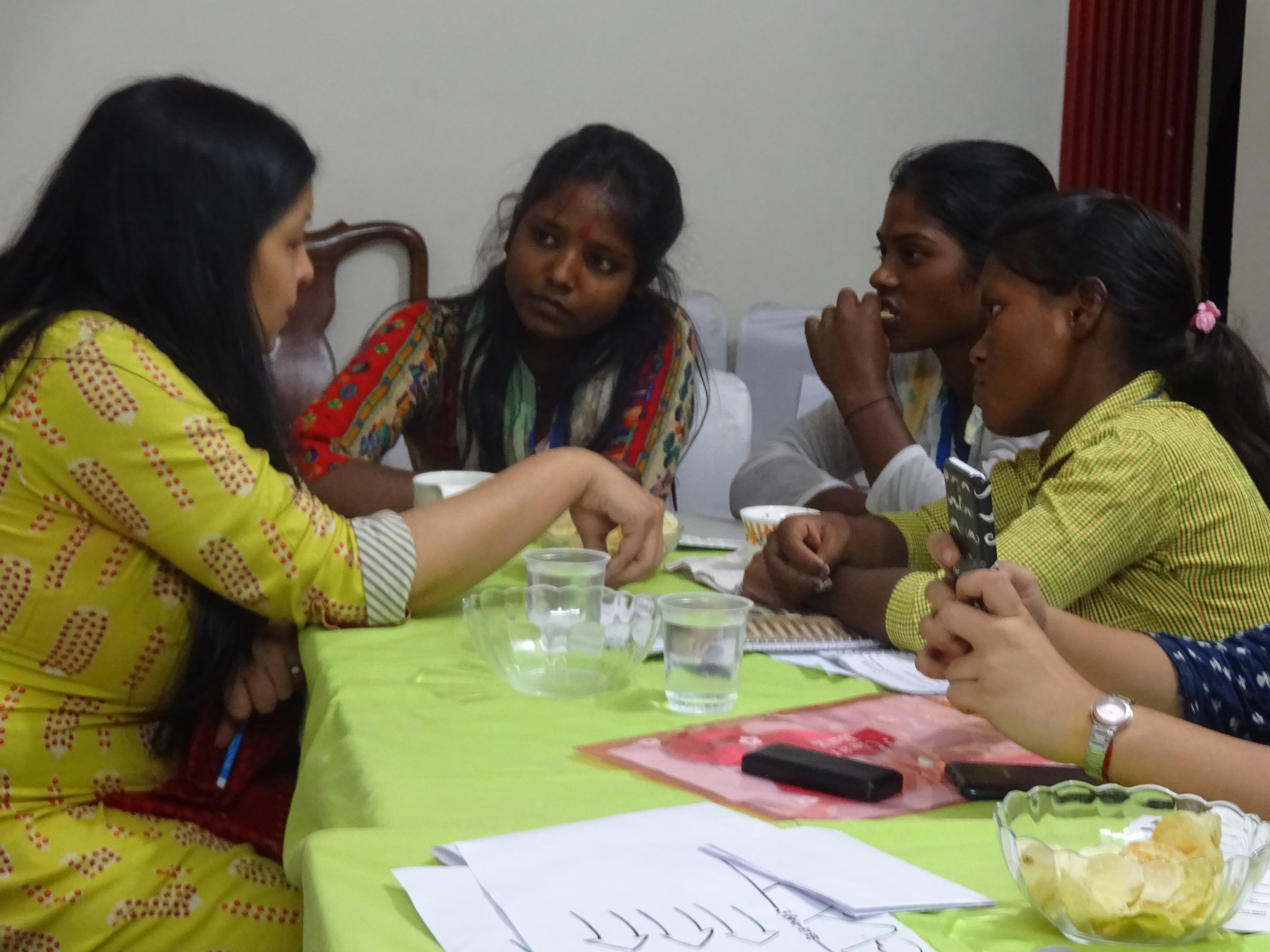
(S): Despite immense hardships in your life, you never once gave up. What drove you on through all the tough times?
(R): Brought up by a single mother, together we had faced the excruciating grind of life. Having spent some years below the poverty line myself, I know what hunger feels like.
The condition of tribal people is much worse than what was mine some years ago. The strength of human endurance is tested to its limit every day and new benchmarks are created. I feel that it would be an act of utmost indifference and insensitivity if I do not make an attempt to help such people.
They are my fellow citizens and they too have the full right to live their life happily and with dignity. My sense of moral responsibility motivates and pushes me to do whatever best I can for my fellow tribal citizens.




Leave a Reply